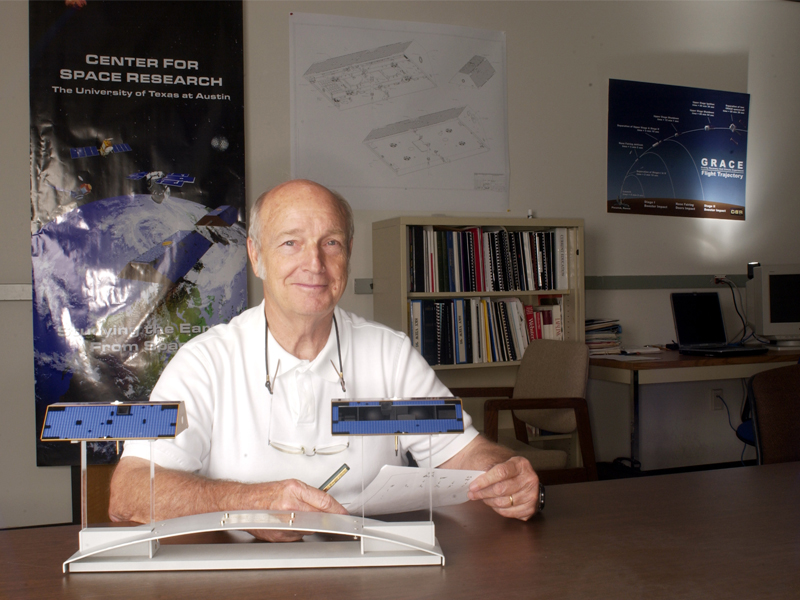Pioneer of Space Geodesy Honored for 50 Years of Work, Modern Understanding of Climate Change, Oceanography

Byron Tapley, professor in the Cockrell School of Engineering’s Department of Aerospace Engineering and Engineering Mechanics
For 50 years, Byron D. Tapley, principal investigator of NASA’s Gravity Recovery and Climate Experiment (GRACE) mission and professor of aerospace engineering at The University of Texas at Austin, has been an educator, a researcher, and a visionary who has made unique and significant contributions to the field of aerospace education and space geodesy.
Engineers, scientists, colleagues and former students from around the world honored Tapley at a symposium and banquet Feb. 1 in Austin. During his 50 years of teaching, Tapley has interacted with thousands of students and supervised hundreds more during their doctoral and master’s programs. His students have become leaders in every aspect of national and international space exploration, holding key space-related positions in industry, the military, NASA, international space agencies and academia.
Tapley’s accomplishments, including publications, professional and honorary society memberships, national and international advisory committee service, honors and awards received, and students whose lives he has touched, grew too numerous to fully detail. A few of his career awards include election to the National Academy of Engineering, the American Geophysical Union Charles A. Whitten Medal which recognizes outstanding achievements in research on the form and dynamics of the Earth and planets, the American Astronomical Society Dirk Brower Award, the honorary doctorate from Delft University of Technology, and NASA’s recent 2007 William T. Pecora Award to the GRACE science team for scientists’ achieving excellence in Earth observation.
His colleagues consider Tapley among the elite individuals who have developed the interdisciplinary art of space geodesy, the scientific discipline measuring and representing the Earth, including its gravity field, in three dimensions. His lifetime of work remains relevant as it continues to address contemporary problems in climate change, oceanography, geodynamics and geophysics.
